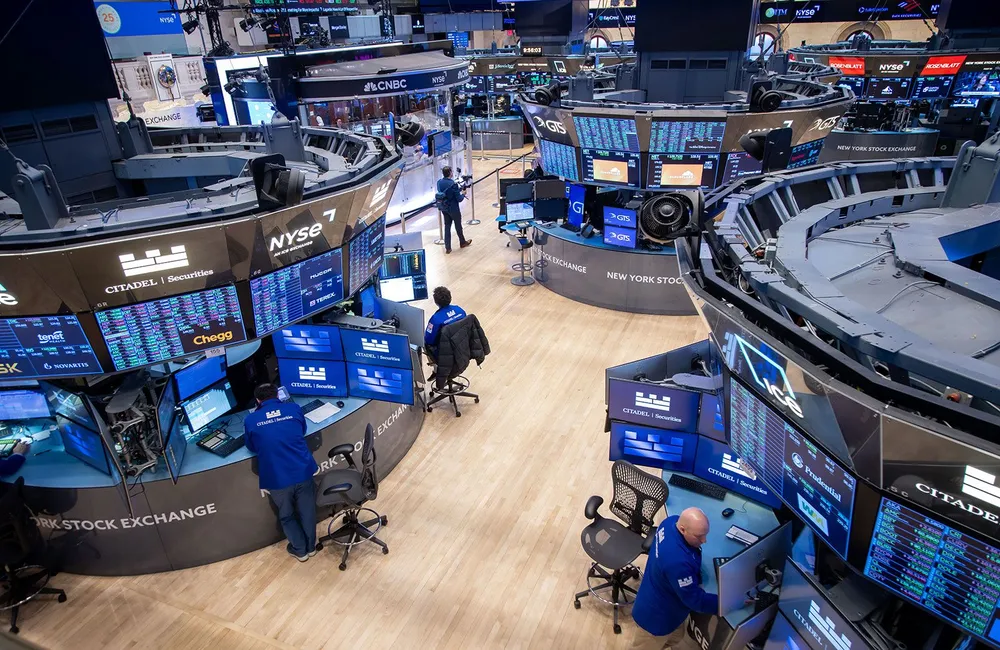Fears of a global economic slowdown have spread among investors. I attended the always-excellent Investment Conference Thursday and I was struck by how many advisers and fund managers had an economic downturn listed as their No. 1 fear. Some clues as to the likelihood one will eventuate are in Silicon Valley.
Wake-up call for the beleaguered US tech sector: layoffs, hiring freezes
Trading platform Robinhood lays off 9% of full-time employees. Indoor exercise bike phenomenon Peloton laid off 2,800 employees and parted ways with its co-founder as people returned to the outdoors. Uber’s chief executive warned last month in a letter that staff hiring was a “privilege.”
Venture capital firms are pulling in their horns. The giants Sequoia, Y Combinator and Andreessen Horowitz are all advising their portfolio companies to brace for a tougher time raising money if they can at all. And the value of Australia’s star unicorn, Canva, was slashed at Franklin Templeton by 58% in less than six months.
“None of us knows how bad the economy will be, but it’s not looking good,” Y Combinator said in a May email to its babies.
Slowing growth and rising costs are prompting bigger tech players to retrench as well. In May, Netflix laid off roughly 2% of its staff. Facebook announced in the same month it would slow or pause mid-to-senior level hiring. Recruitment is being frozen at Twitter. Amazon grew to about 1.6 million employees during the pandemic, but it told investors in April that it was “overstaffed.”
What should investors in St Leonards or St Kilda care about unemployed coders in California? Because they can be the canaries in the coal mine for the state of the US economy.
Changes to interest rates take years to seep through an economy but plenty of these companies, with business models predicated on turbo-charged growth, are sensitive to even slight shifts in conditions.
Increasing borrowing costs and waning risk appetite are choking off the flow of cheap money that unprofitable companies like Uber rely on. Big firms like Facebook have the cash — US$43 billion at last count — but are telling investors that the rate of growth that prevailed during the pandemic is slowing as prices rise and macroeconomic conditions sour.
As inflation-defying central banks run the risk of crashing the economy, turmoil in the technology sector might reflect how well the “high wire act” is working, says Stephen Miller, investment strategist at GSFM in Australia.
“While these tech companies are not the whole economy, they are the canary in the coalmine, and at least it tilts the balance of risk to the economy going into recession. This might be an omen of that,” he says.
“If a recession were going to happen, this is the way it would look in early stages. It’s not a foregone conclusion that a recession will occur, but if it does occur, here’s how it will.”
For the moment, the labour market remains red hot, in the US and here. For one, there is a consensus among analysts that the US Federal Reserve will manage a soft landing — that is, a soft recession. I'm a little sceptical. A new paper from Alex Domash and Larry Summers — who correctly warned that inflation was a risk back in early 2021 — makes the case that the economy is too hot even for a slow crash landing into recession.
But the ‘tech wreck’ bursting of the dot-com bubble two decades earlier showed that technology stocks could crash without causing massive damage to the broader economy.
Jun Bei Liu, lead portfolio manager at Tribeca Investment Partners, believes the pain is likely to remain confined to US tech. It’s bad news for local companies in the tech supply chain like Appen, but wider contagion is not likely.
If a recession were to strike the US, it would be another matter. The ASX can be held back if the US flags, though, she says, and growing Chinese stimulus is a powerful countervailing force.
“If the US falls, we fall right after it. If that share market is under pressure, it’s more pressure for the rest of the world.” It’s a little hard to see us growing strongly if the other market is slowing.”
For the week ended 27 May, the S&P 500 broke a seven-week losing streak. Mark Lamonica and Peter Warnes are also wary. Warning signs: Warnes says to beware bear-market rallies, noting indicators in the US housing market. In the fifth and concluding installment of his Bubbleville series, Lamonica views further pain coming and urges investors to use the down period to come up with a personal investing philosophy.
Mike Cannon-Brookes won another round this week as AGL's board decided to delay contentious plans for the demerger of its coal assets. With the company’s future uncertain, shareholders say it may be forced to sell off valuable assets at knock down prices to pay back its banks. Over at Graham Hand, there’s a closer look at why the popular narrative about fossil fuel obsolescence is worth scrutinising.
If you want a refresher on what happened this week, my colleague Nicola has you covered.





















